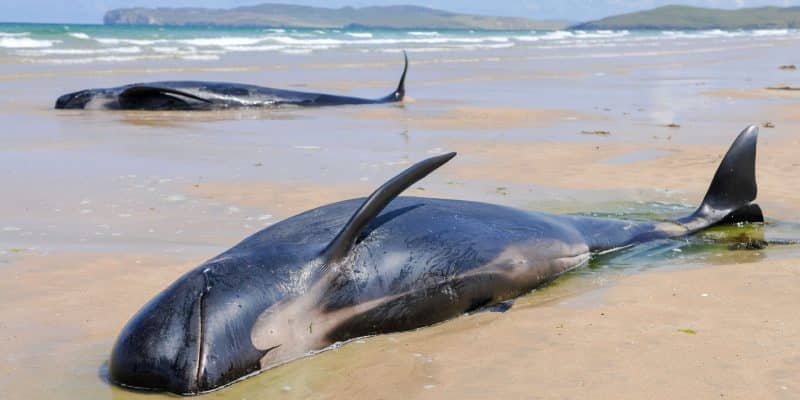The Malagasy government has just begun consultations with cetacean experts. The aim is to improve the alert protocol against whale calf strandings on the coast of Madagascar. Since July 2022, 12 humpback whales have stranded on the coast of the big island.
A network of marine mammal experts will be set up to better understand the causes of the increase in whale strandings on the coast of Madagascar. This is the main resolution of the consultative meeting held on 12 September 2022 in Antananarivo, the Malagasy capital. The meeting was attended by officials from the Malagasy Ministries of Fisheries and the Blue Economy, the Environment and Sustainable Development, and Higher Education, as well as partners such as Cetamada, an organisation that works to protect cetaceans.
During this technical meeting, several cetologists (cetacean specialists, editor’s note) expressed their opinions on the increase in whale strandings off Madagascar. According to a map published by the government, nine of the 12 strandings have been spotted on the eastern coast of Madagascar. Three cases were recorded between 6 and 9 September.
The birth boom and the intensity of maritime traffic
Anjara Saloma, a doctor of biology and cetacean specialist, is one of the experts consulted by the Madagascan government. According to this scientist, the particularly high peak in whale births near the island’s coasts this year could justify this worrying rise in calf strandings. “So in relation to this data revealed by the researchers, there may be cases of stillbirths, cases of strandings of young whales that are weak and die… So we can say that if there are more births, we can naturally observe more stranded individuals,” explains Anjara Saloma.
The scientist nevertheless recognises that several anthropogenic factors such as overfishing or marine and noise pollution can disorientate cetaceans and lead to their demise. In the future, to be able to determine with certainty the causes of these strandings, it would be essential to intervene on the spot when the animal is found on the beach.
Read also-SENEGAL: Mystery hovers over the death of dolphins and turtles in the north of the co
In setting up the network of marine mammal experts that the Malagasy government has just approved, the local community will be integrated into the reporting process. “These sentinels can be anyone, from the municipality, the gendarmerie and civil society. A pirogue driver, a fisherman who passes by the beach. It’s just a matter of being trained to have the right reflexes and the right gestures when faced with a stranded animal,” explains cetologist Anjara Saloma.
Boris Ngounou





